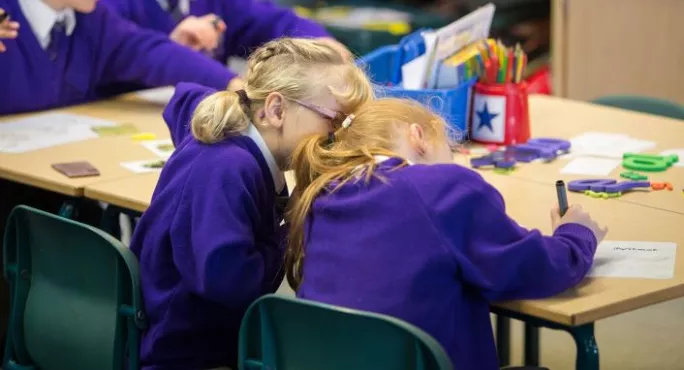Reforms to primary education such as a new curriculum, the phonics check and maths mastery lessons have improved schools and made them “unrecognisable” to how they were a generation ago, a minister has said.
School standards minister Nick Gibb makes the claim on primary school offer day, when families will find out which primary school has offered their child a place in September.
But the New Schools Network, which supports groups wishing to set up free schools, warned that 100,000 families would be allocated places in underperforming schools.
Quick read: Ofsted inspections won’t examine internal school data
Hinds: DfE praises framework for tackling teacher workload
Opinion: Will Ofsted’s curriculum vision be reduced to box-ticking?
Mr Gibb said that the government’s reforms meant parents could be more confident than ever that their children would get a world-class education.
He said: “Any school place offer day is a big event for families, but parents should be reassured that the improvement in the school system means that they would probably find the schools themselves unrecognisable from a generation ago.
“The curriculum has been revitalised, the phonics check is helping thousands of six-year-olds become fluent readers, the Teaching for Mastery programme means many pupils are being taught maths using world leading techniques and the gap between disadvantaged pupils and their peers is falling.
“What this means in practice is that even in instances where parents aren’t getting the news they hoped for today, the likelihood is that their child will be attending a school which will provide a first-class education.”
The Department for Education said that 87 per cent of primary schools are judged “good” or “outstanding”, compared to 67 per cent in 2010.
According to the DfE, 97.7 per cent of primary pupils were offered one of their top three choices last year, while 91 per cent were offered their first choice.
However, the NSN said that many families would still be allocated in “stuck” primaries that have not improved since 2005.
According to the NSN’s analysis, up to 100,000 families will be allocated places in the 2,223 primary schools that are rated by Ofsted as “inadequate” or “requires improvement”.
Of these schools, 290 “stuck schools” have been judged less than “good” at every inspection since 2005. The NSN estimates that about 12,500 families will be offered places in these schools today, and that more than one million children have attended these schools since 2005.
The free-school charity is calling on the government to make poor educational standards the primary criteria for approving new free schools, rather than available school places in an area.
The NAHT heads’ union meanwhile called for a more coordinated approach to primary offers.
General secretary Paul Whiteman said: “Local authorities are responsible for ensuring sufficient school places, but the powers and resources necessary for them to do so have been removed.
“Instead, planning is haphazard; decisions are being made in isolation and new schools and new school places are not always being commissioned in the areas they are most needed.”





